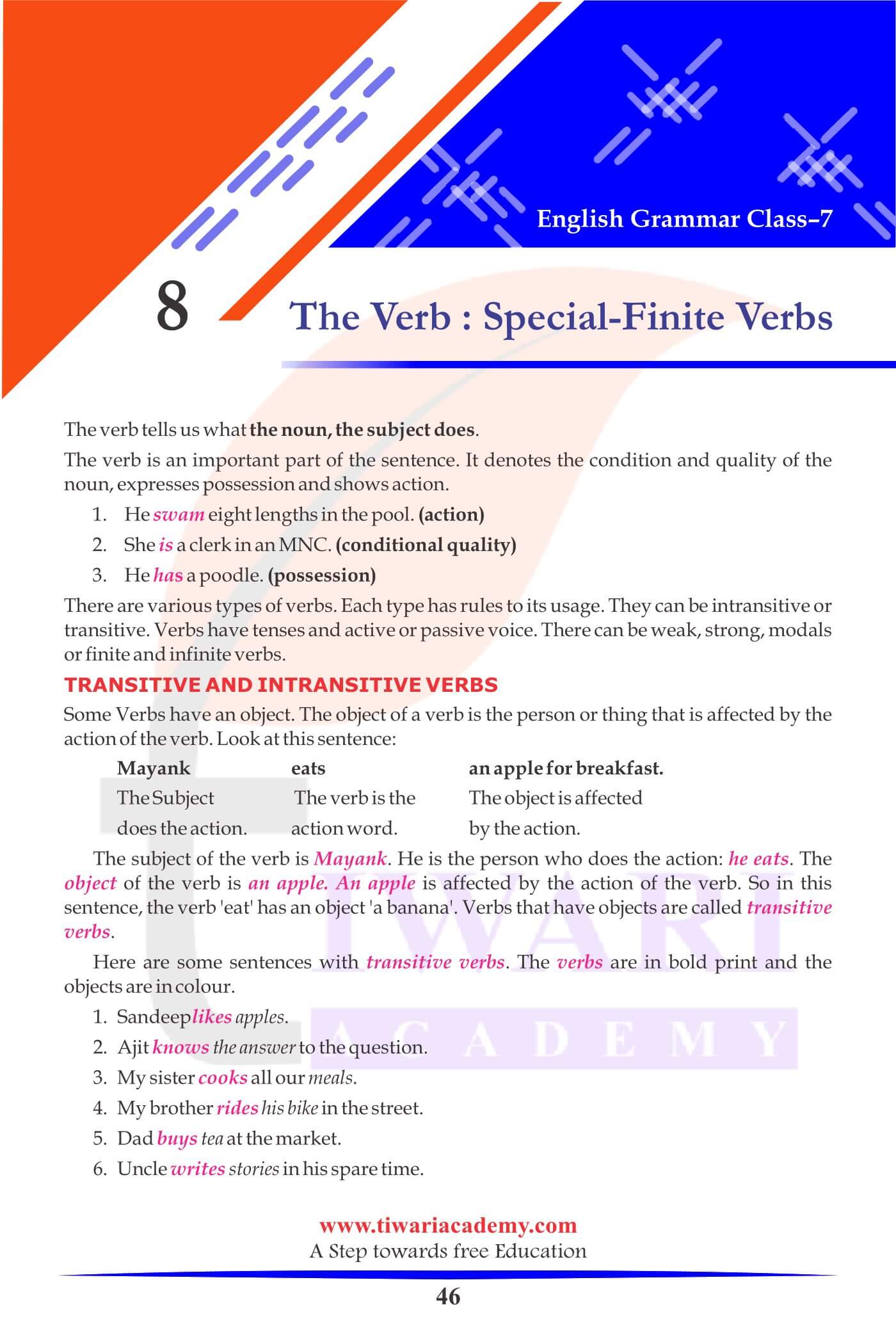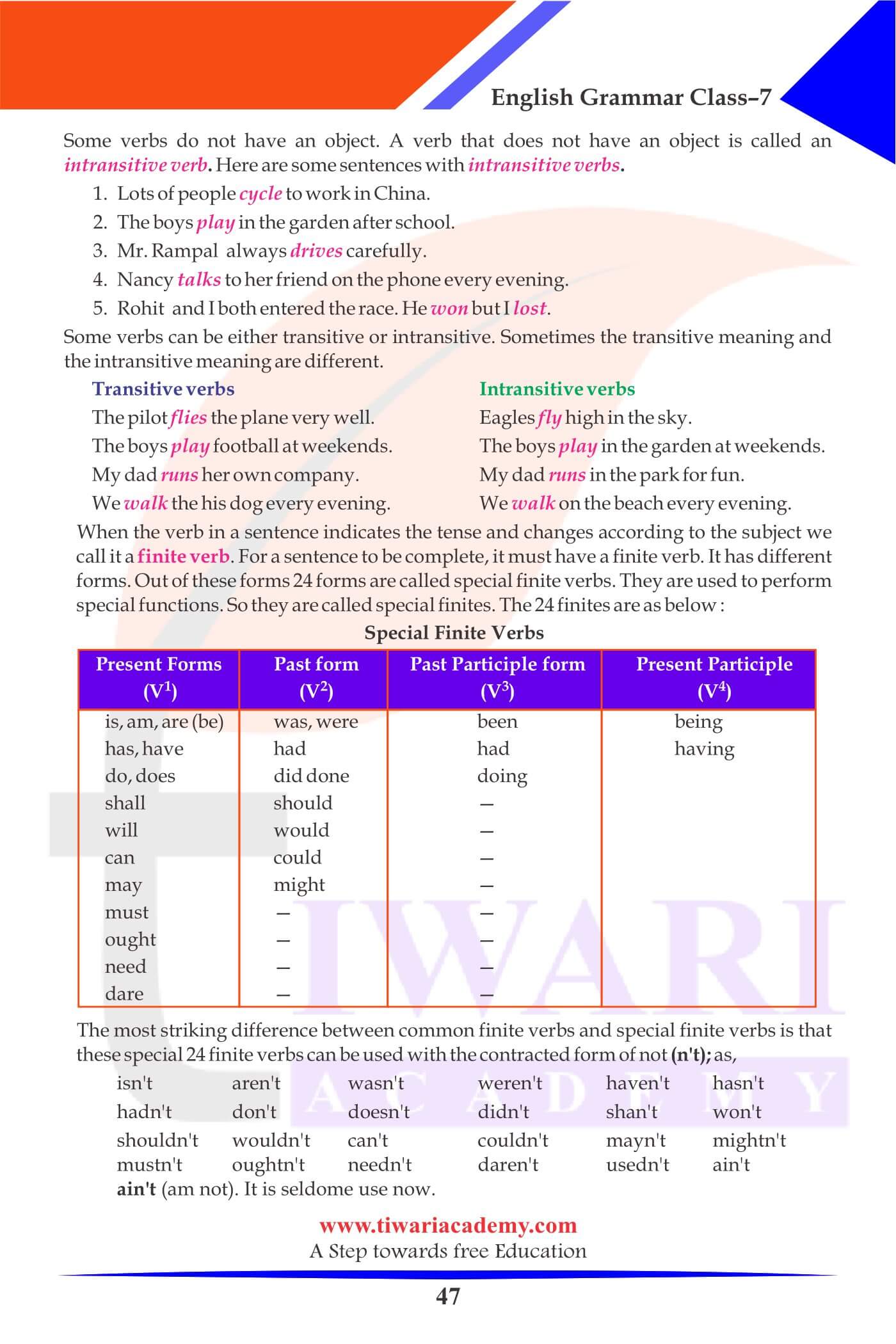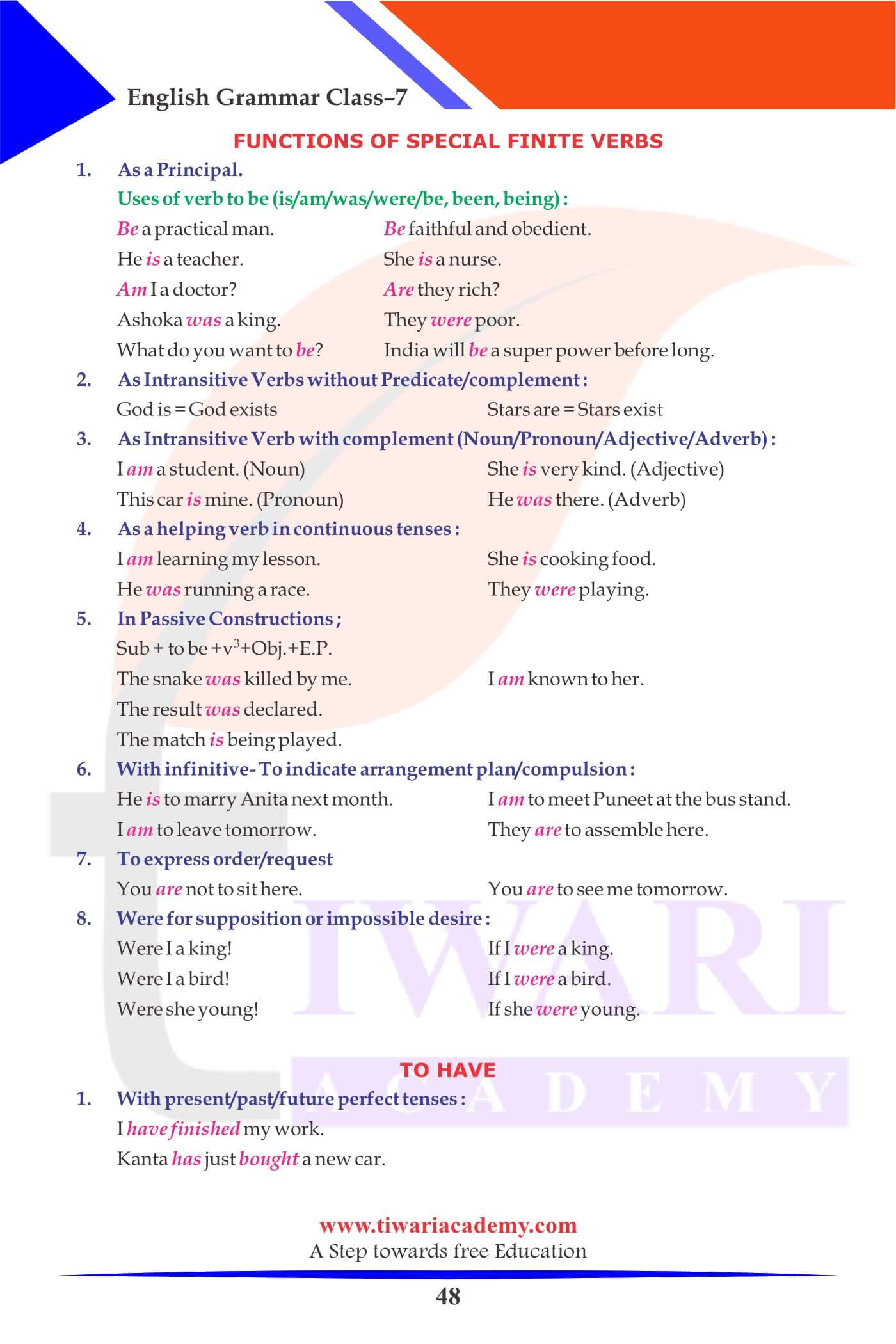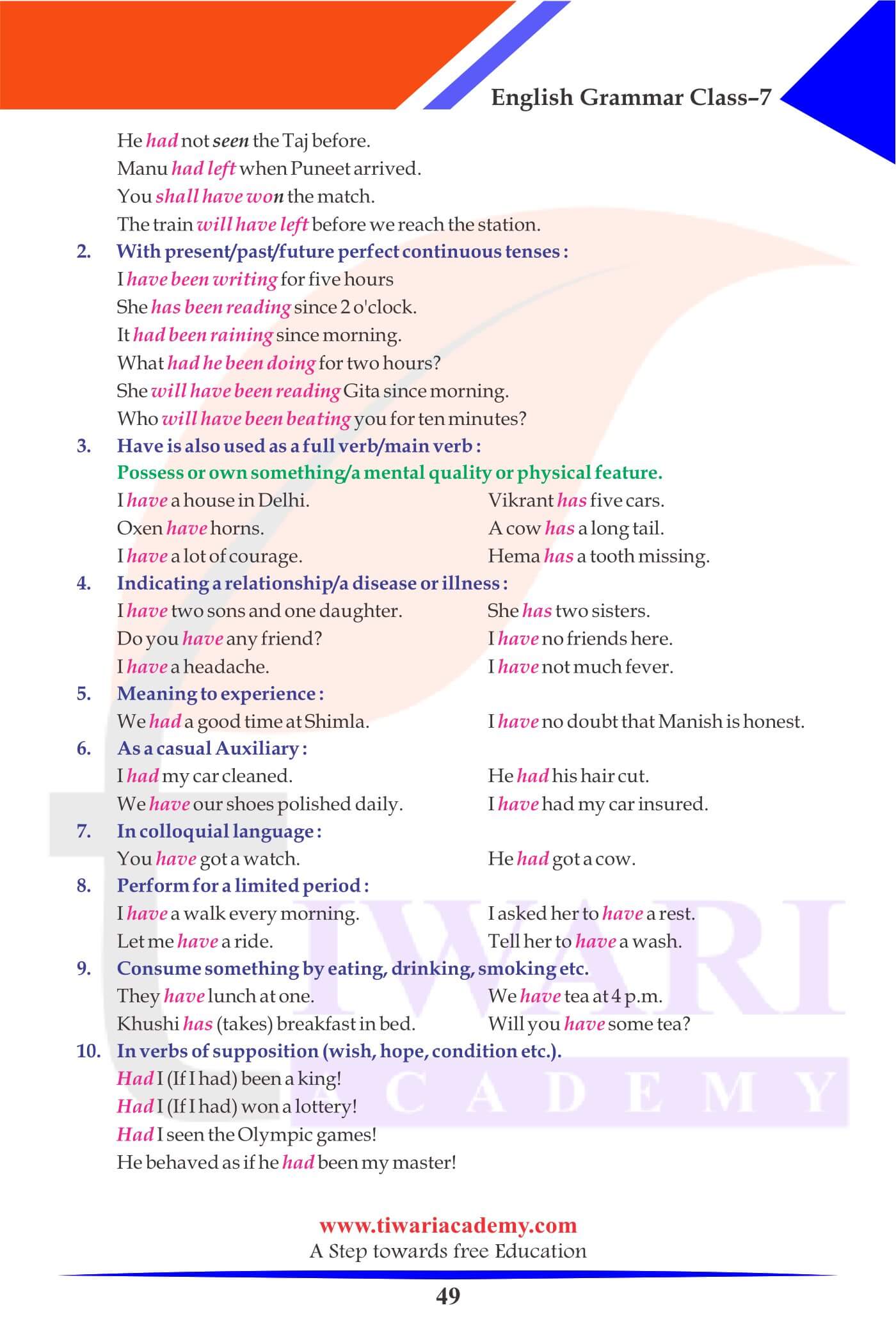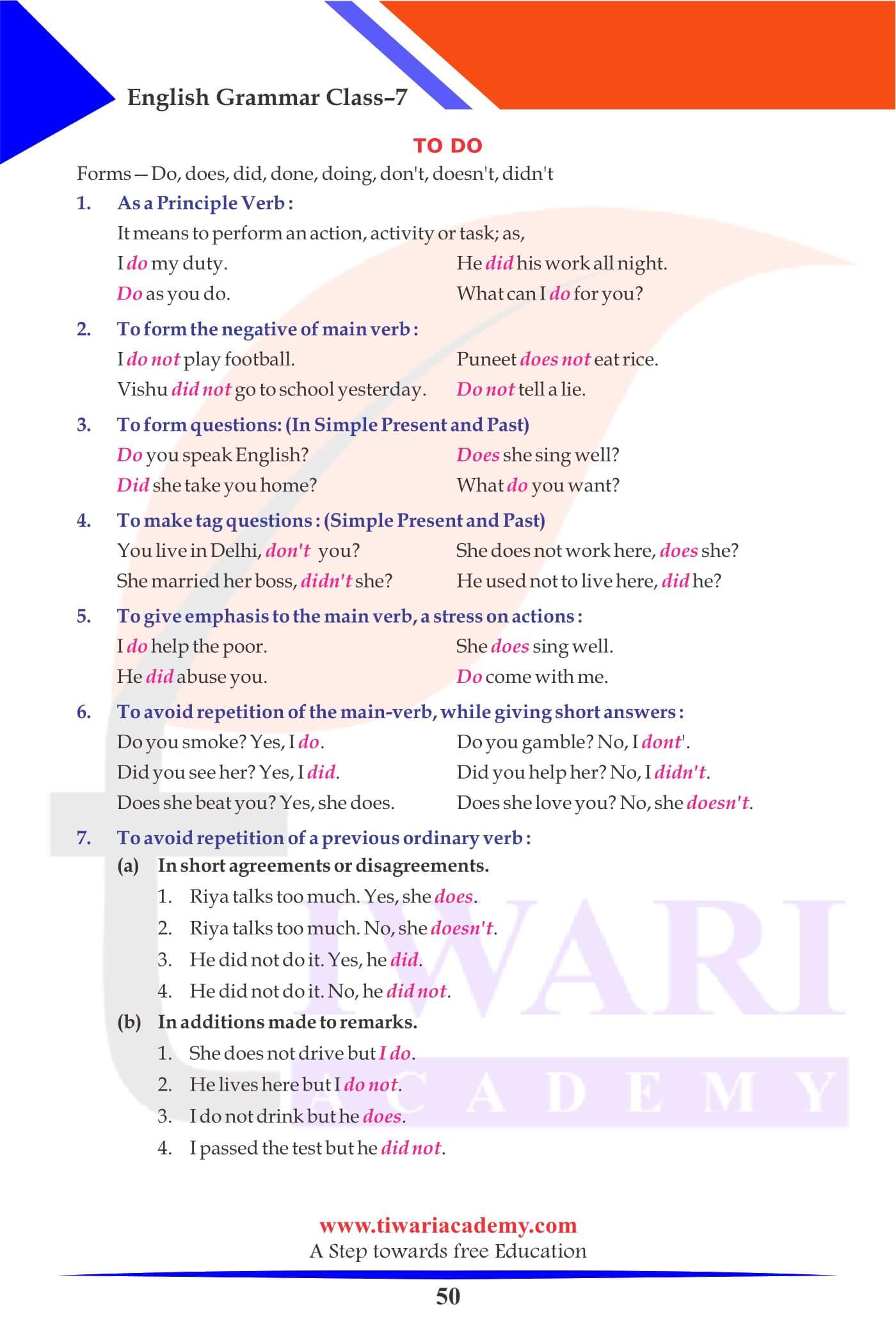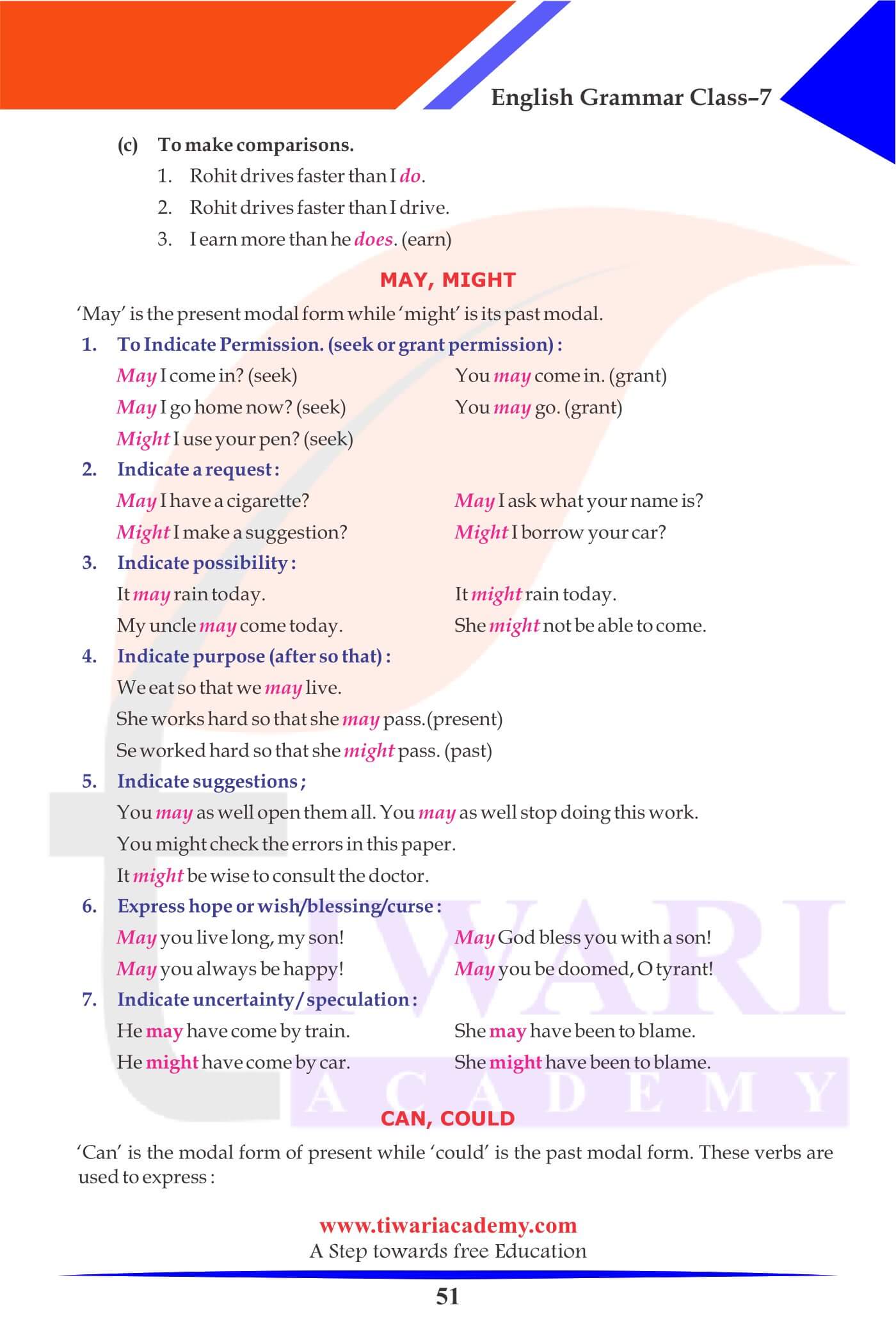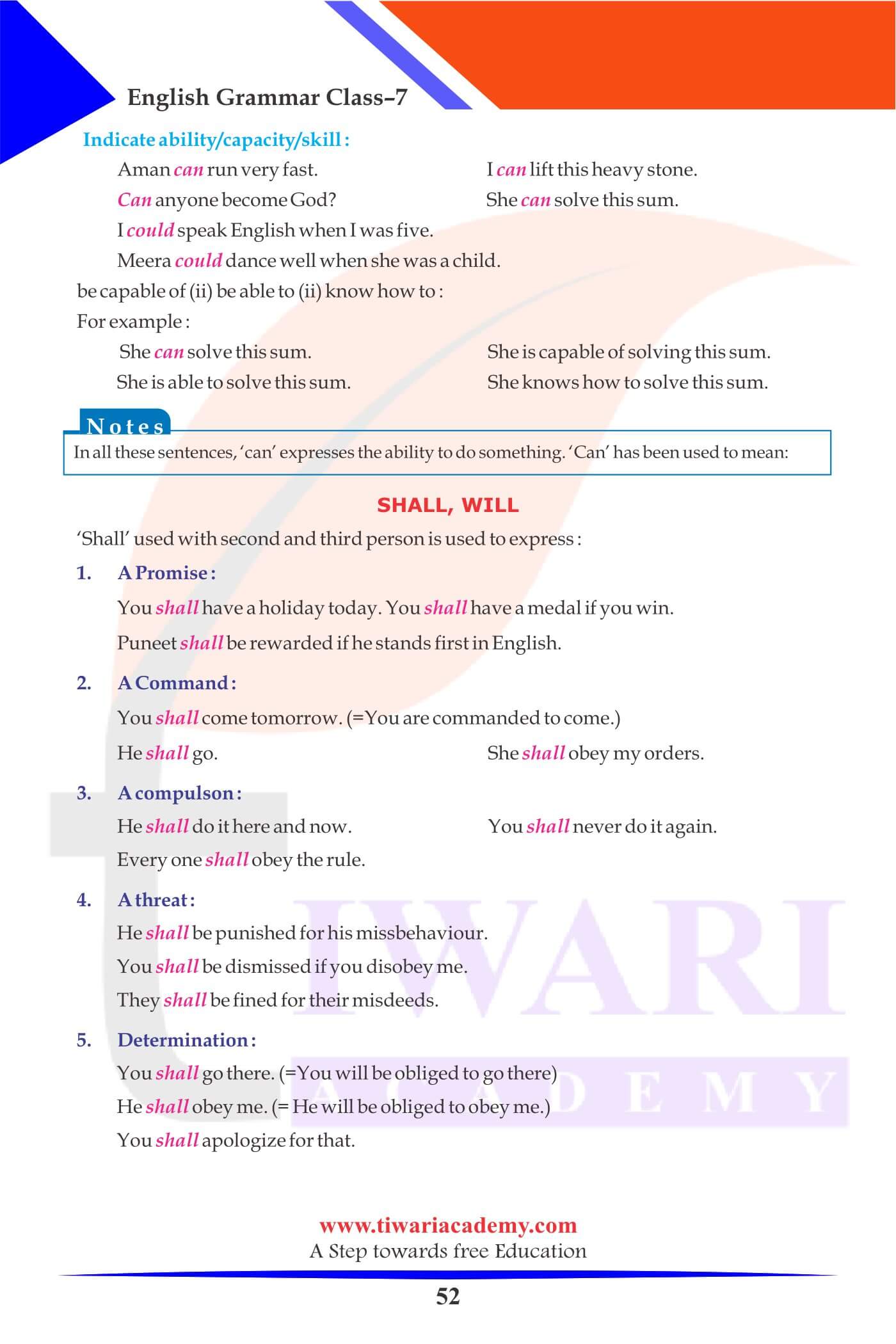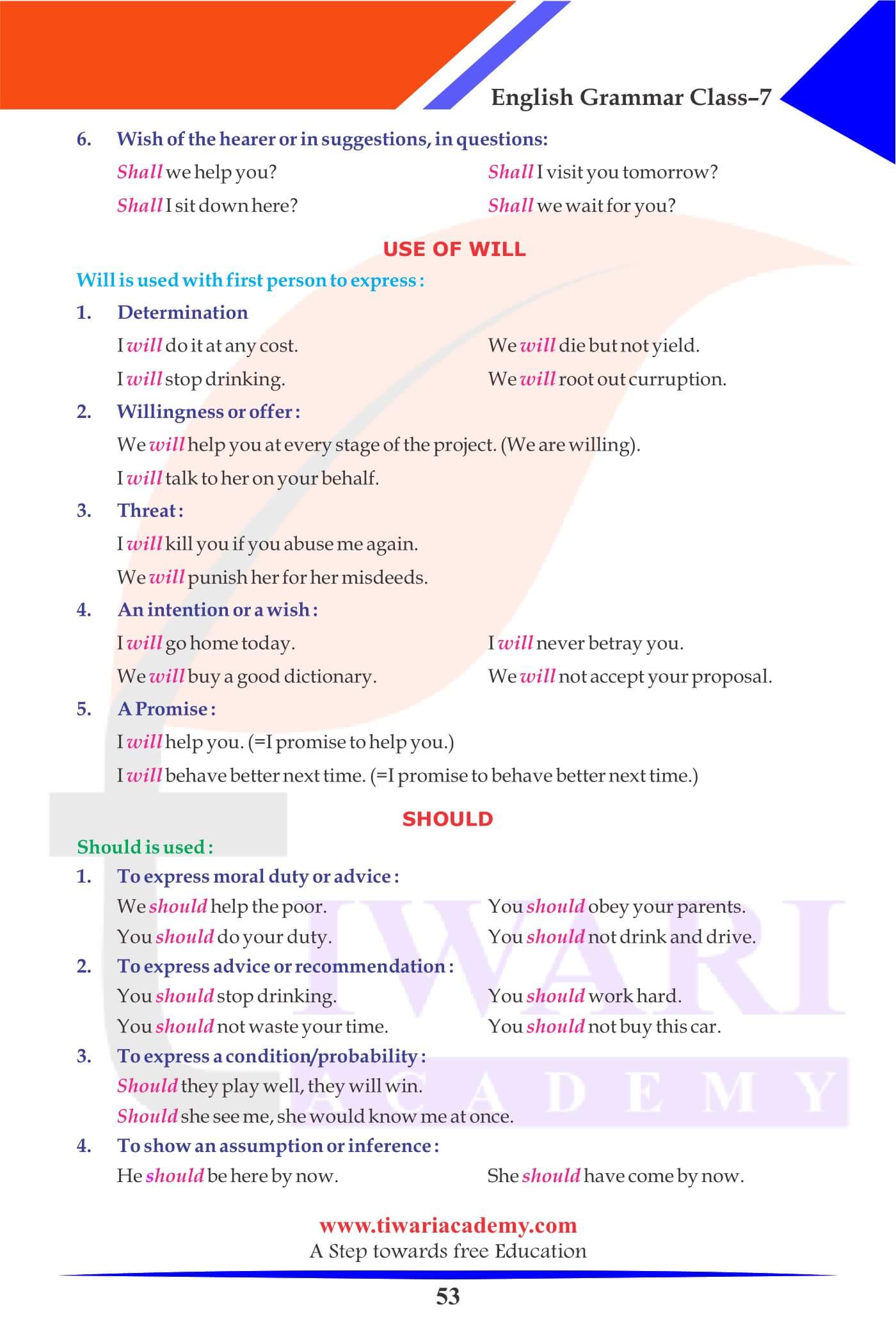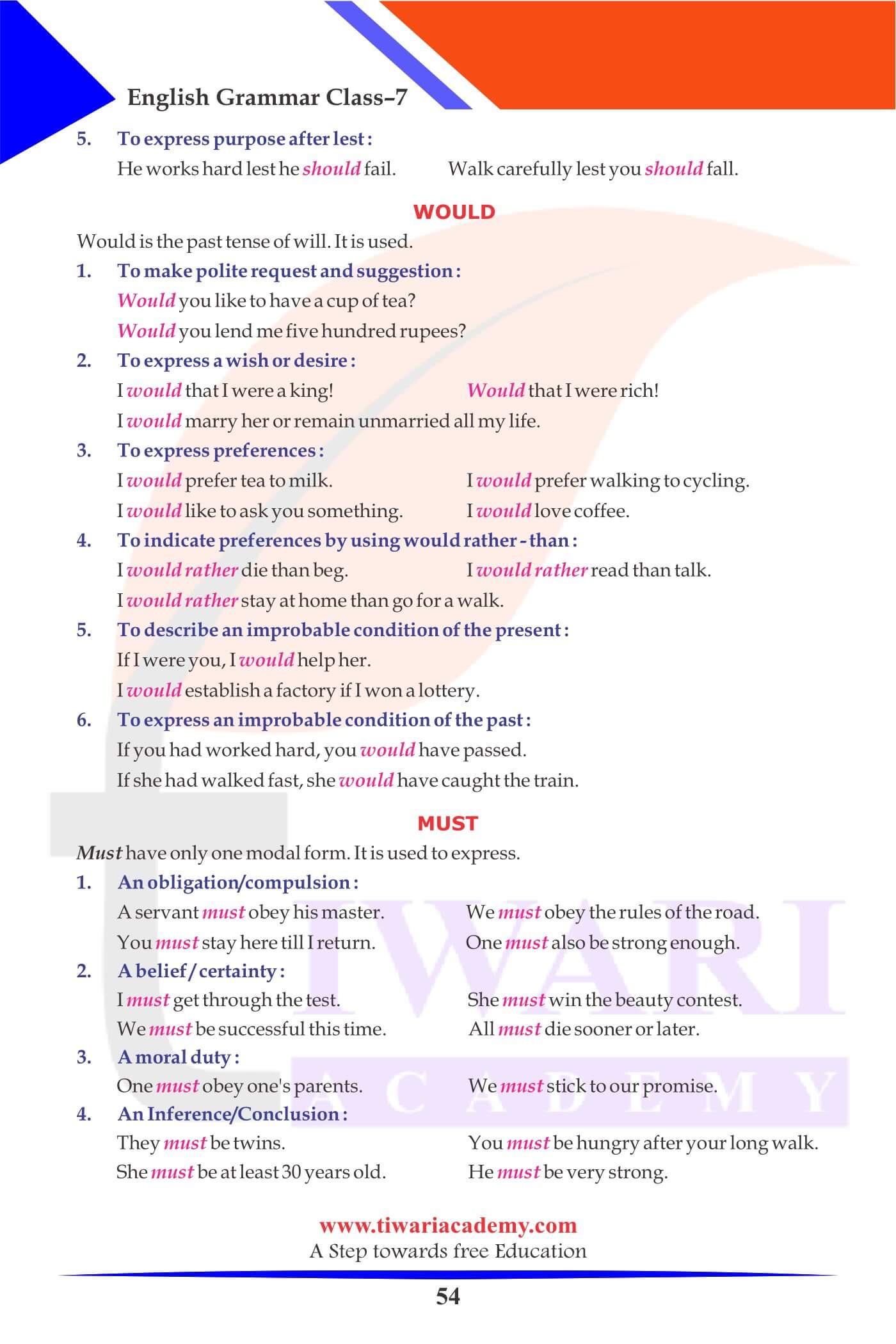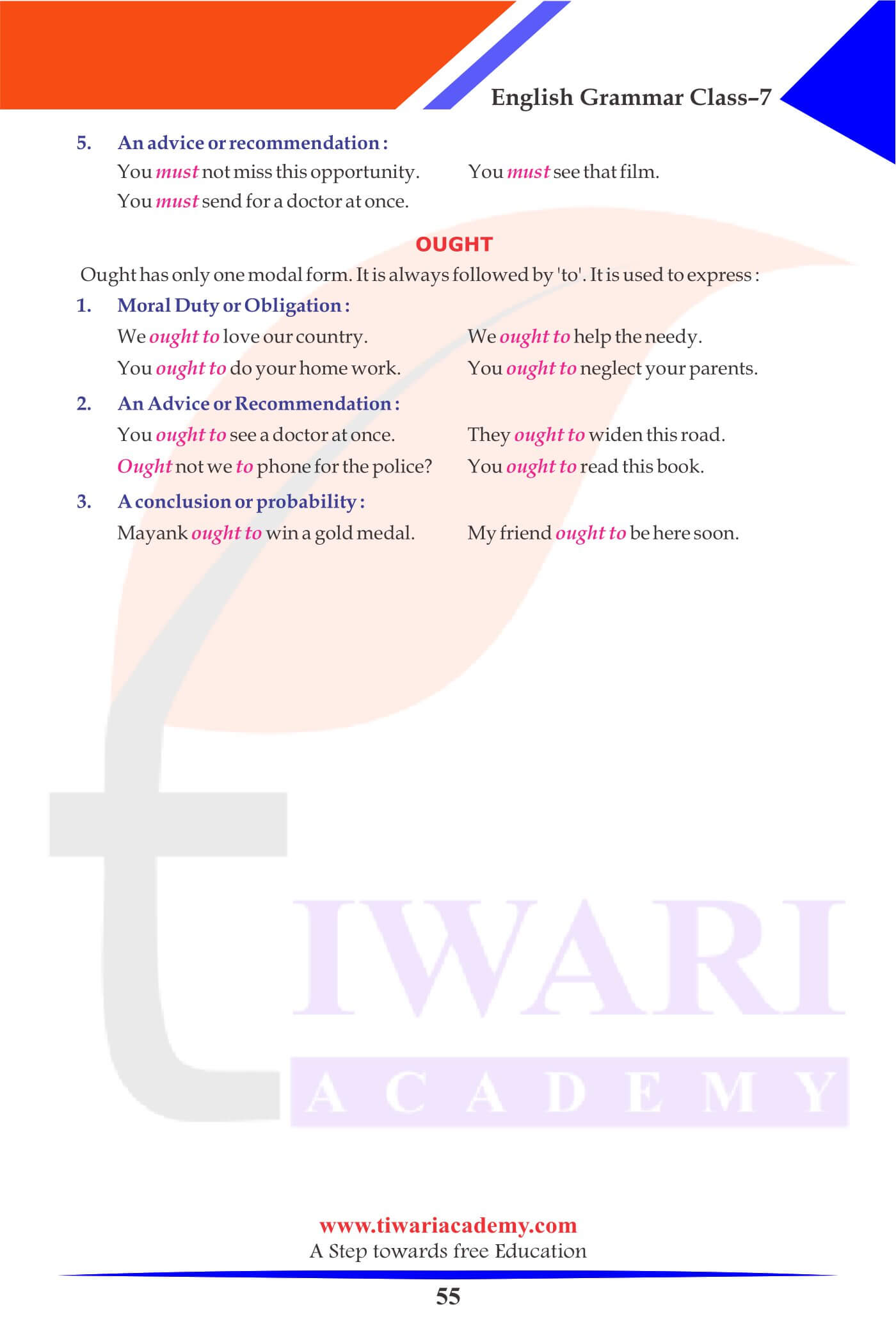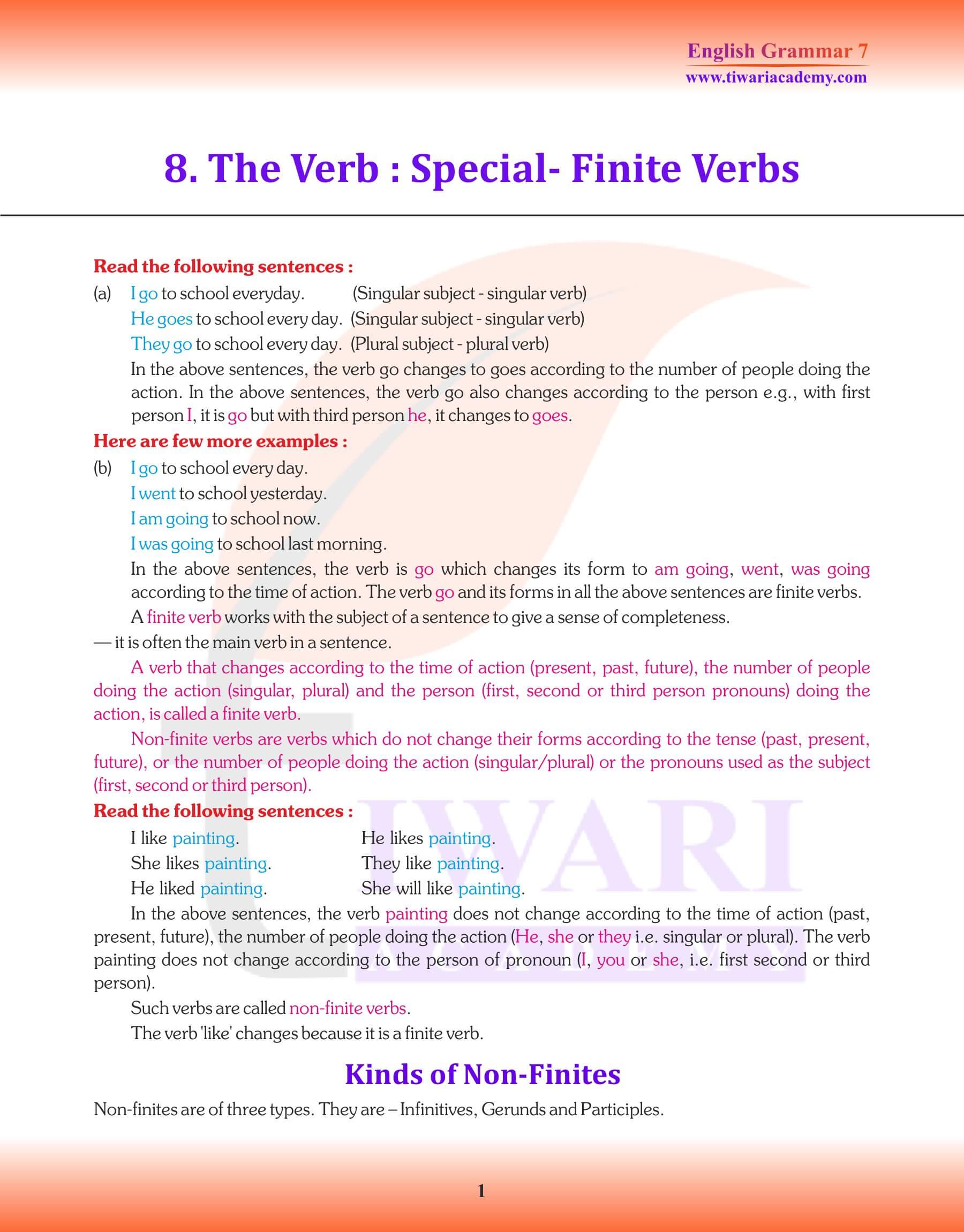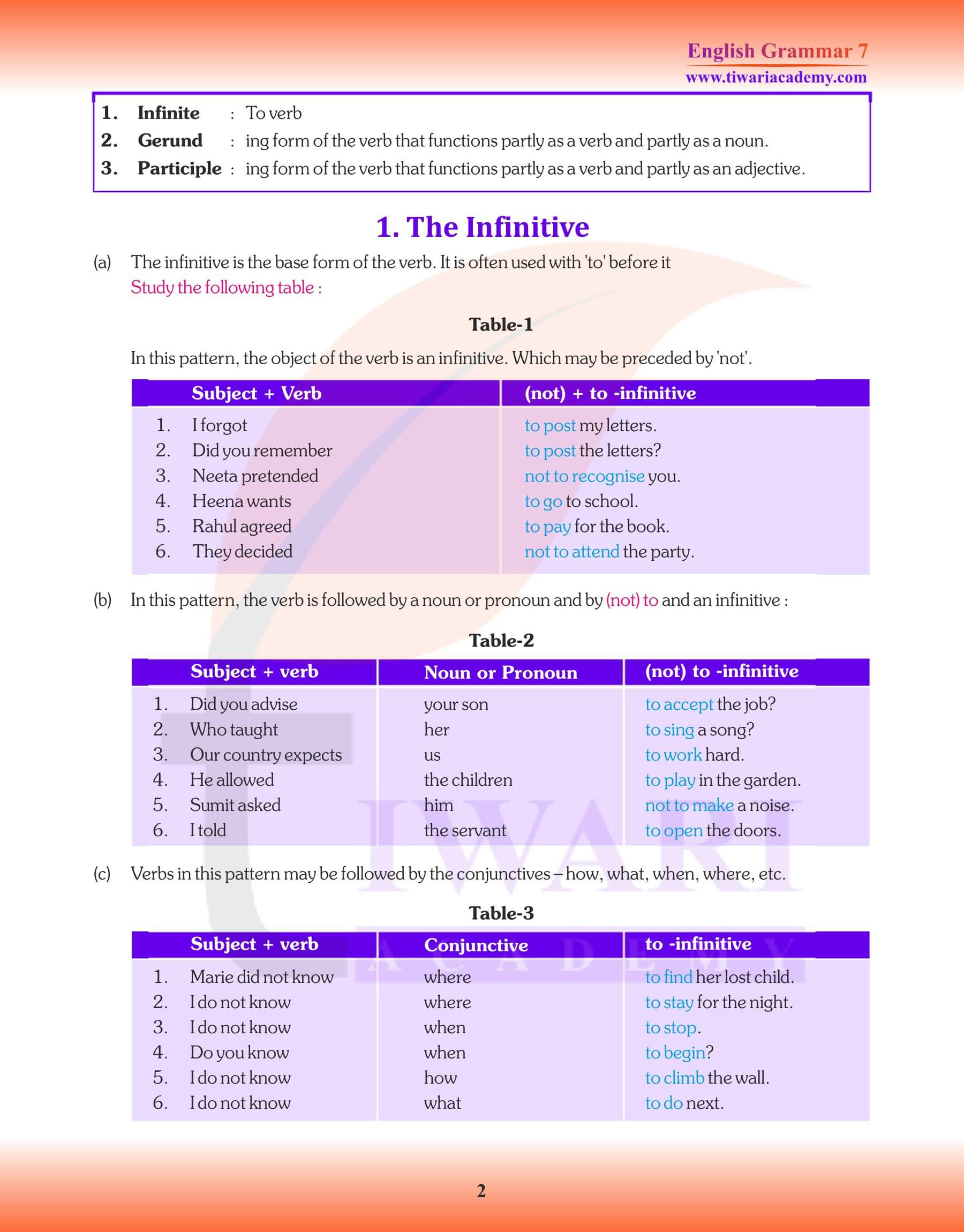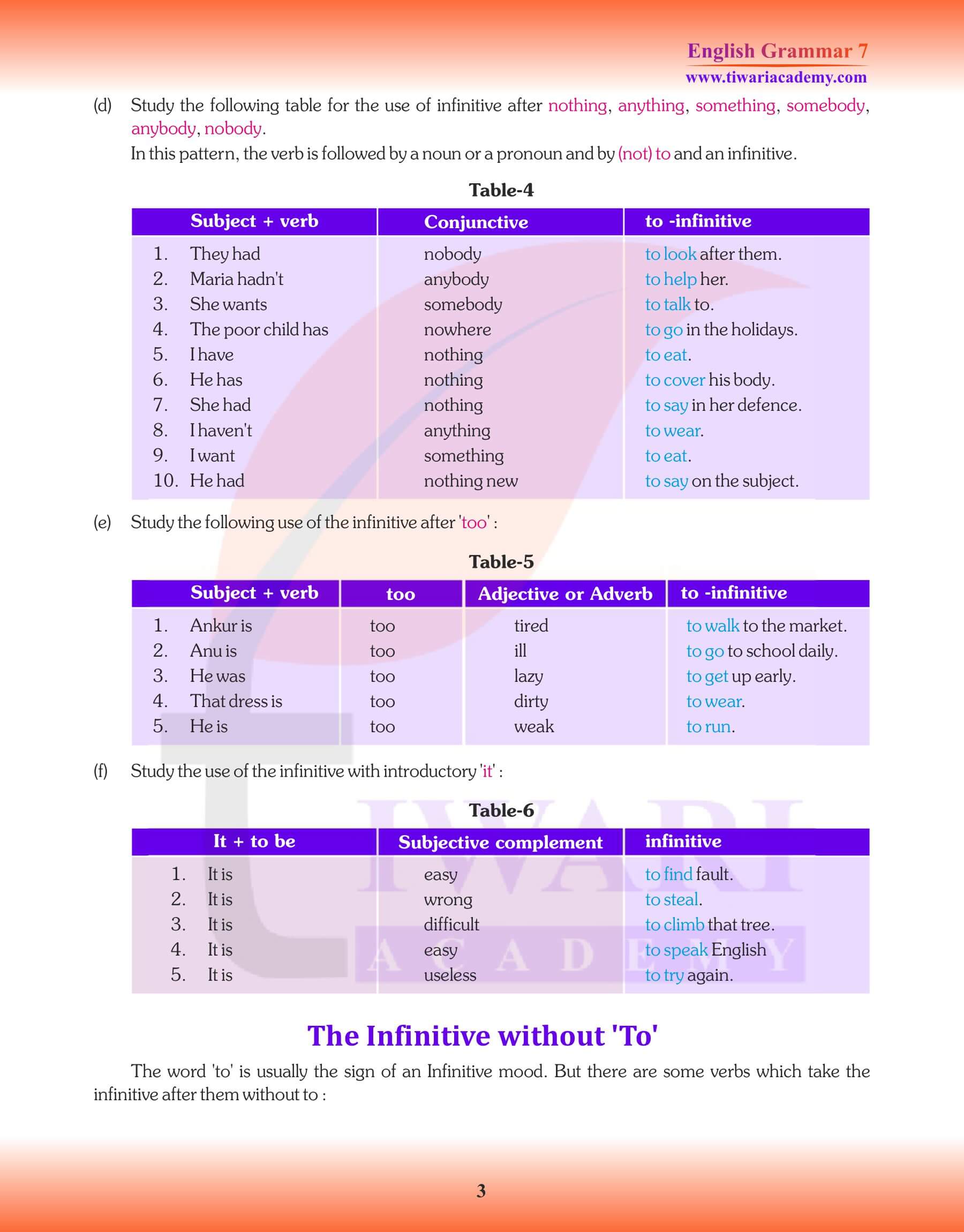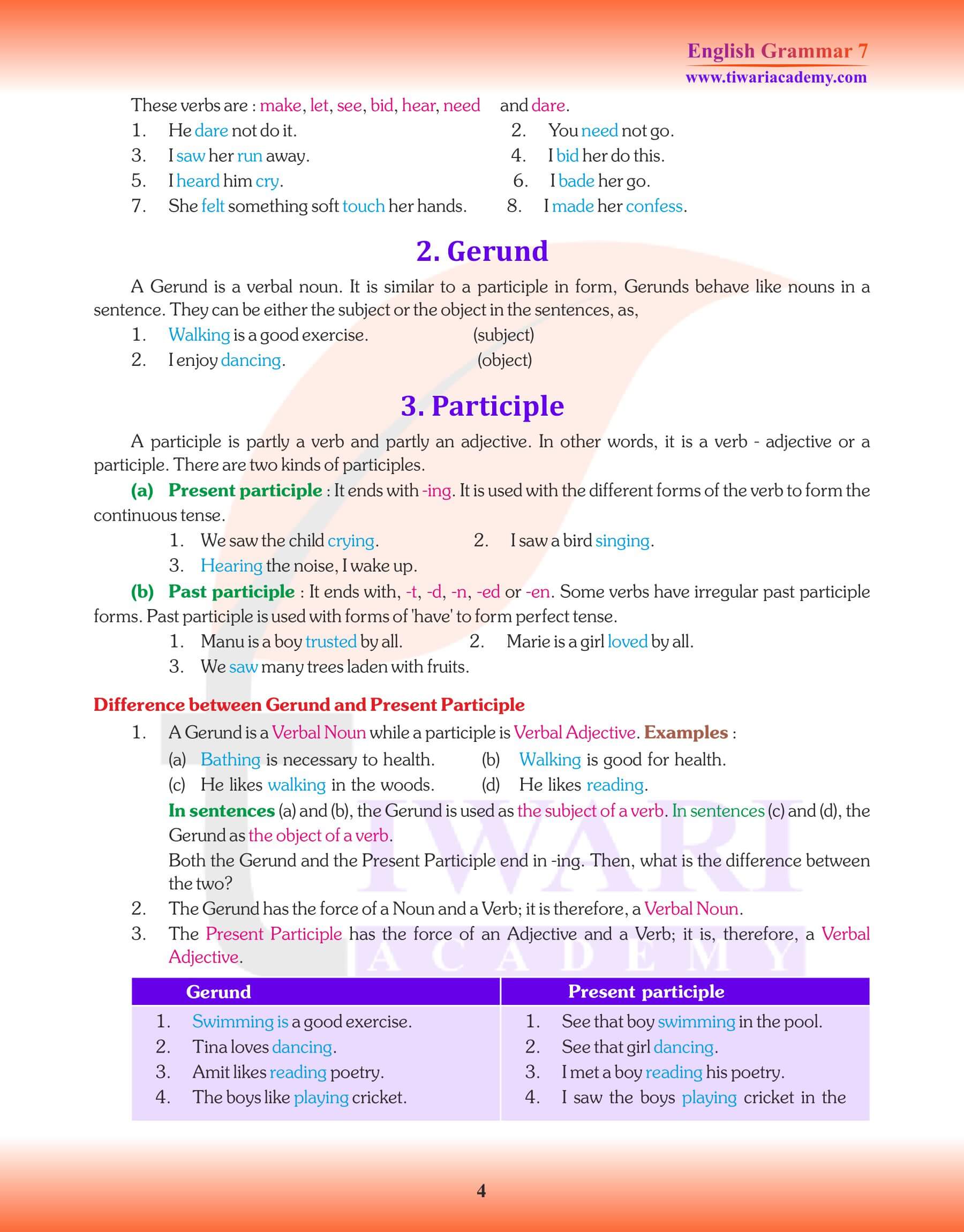Class 7 English Grammar Chapter 8 The Verb Special Finite Verbs. The verb tells us what the noun, the subject does. The verb is an important part of the sentence. It denotes the condition and quality of the noun, expresses possession and shows action. There are various types of verbs. Each type has rules to its usage. They can be intransitive or transitive. Verbs have tenses and active or passive voice. There can be weak, strong, modals or finite and infinite verbs.
Class 7 English Grammar Chapter 8 The Verb Special Finite Verbs
In the 8th chapter of Class 7 English Grammar, students embark on a journey to discover the pivotal role of ‘Verbs’. Acting as the heartbeat of a sentence, verbs not only depict actions but also describe the condition, quality, or possession related to a noun. Every noun, which acts as the subject, is energized by a verb, determining its actions or states. This makes verbs an indispensable component of English language structures.
| Class: 7 | English Grammar |
| Chapter: 8 | The Verb Special Finite Verbs |
| Academic Session: | 2025-26 |
| Textbook: | Course book and Revision book |
Transitive and Intransitive Verbs
Some Verbs have an object. The object of a verb is the person or thing that is affected by the action of the verb. Look at this sentence:
Mayank eats an apple for breakfast.
The Subject The verb is the The object is affected
does the action. action word. by the action.
The subject of the verb is Mayank. He is the person who does the action: he eats. The object of the verb is an apple. An apple affected by the action of the verb. So in this sentence, the verb “eat” has an object “a banana”. Verbs that have objects are called transitive verbs.
Diving deeper into the verb realm, learners find that verbs are a diverse group. They can be categorized as intransitive or transitive, and can either exist in different tenses or fluctuate between active and passive voices. The chapter further classifies verbs into weak, strong, modals, and even distinguishes between finite and infinite forms. By mastering verbs, students can accurately express actions, emotions, and states, enriching their linguistic capabilities.
Here are some sentences with transitive verbs. The verbs are in bold print and the objects are in colour.
1. Sandeep likes apples.
2. Ajit knows the answer to the question.
Some verbs do not have an object. A verb that does not have an object is called an intransitive verb. Here are some sentences with intransitive verbs.
1. Lots of people cycle to work in China.
2. The boys play in the garden after school.
Some verbs can be either transitive or intransitive. Sometimes the transitive meaning and the intransitive meaning are different.
| Transitive verbs | Intransitive verbs |
|---|---|
| The pilot flies the plane very well. | Eagles fly high in the sky. |
| The boys play football at weekends. | The boys play in the garden at weekends. |
| My dad runs her own company. | My dad runs in the park for fun. |
When the verb in a sentence indicates the tense and changes according to the subject we
call it a finite verb. For a sentence to be complete, it must have a finite verb. It has different forms. Out of these forms 24 forms are called special finite verbs. They are used to perform special functions. So they are called special finites. The 24 finites are as below:
Special Finite Verbs:
| Present Form | Past Form | Past Participle Form |
|---|---|---|
| is, am, are (be) | was, were | been |
| has, have | had | had |
| do, does | did | done |
The most striking difference between common finite verbs and special finite verbs is that these special 24 finite verbs can be used with the contracted form of not (n’t); as,
isn’t, aren’t, wasn’t, weren’t, haven’t, hasn’t, hadn’t, don’t, doesn’t, didn’t, shan’t, won’t, shouldn’t, wouldn’t, can’t, couldn’t, mayn’t, mightn’t, mustn’t, oughtn’t, needn’t, daren’t, usedn’t, ain’t
FUNCTIONS OF SPECIAL FINITE VERBS
1. As a Principal.
Uses of verb to be (is/am/was/were/be, been, being):
Be a practical man.
Are they rich?
TO HAVE
1. With present/past/future perfect tenses:
I have finished my work.
He had not seen the Taj before.
2. With present/past/future perfect continuous tenses:
I have been writing for five hours
She has been reading since 2 o’clock
3. Have is also used as a full verb/main verb:
Possess or own something/a mental quality or physical feature.
I have a house in Delhi.
Vikrant has five cars.
TO DO:
Forms: Do, does, did, done, doing, don’t, doesn’t, didn’t
1. As a Principle Verb:
I do my duty.
2. To form the negative of main verb:
I do not play football.
MAY, MIGHT
‘May’ is the present modal form while “might” is its past modal.
1. To Indicate Permission. (seek or grant permission):
May I come in? (seek)
You may come in. (grant)
CAN COULD
‘Can’ is the modal form of present while ‘could’ is the past modal form. These verbs are
used to express:
Indicate ability/capacity/skill:
Aman can run very fast.
I can lift this heavy stone.
SHALL, WILL
You shall have a holiday today.
I will do it at any cost.
SHOULD
We should help the poor.
WOULD
Would is the past tense of will. It is used.
Would you like to have a cup of tea?
MUST
Must have only one modal form. It is used to express.
A servant must obey his master.
OUGHT
Ought has only one modal form. It is always followed by “to”. It is used to express:
We ought to love our country.
